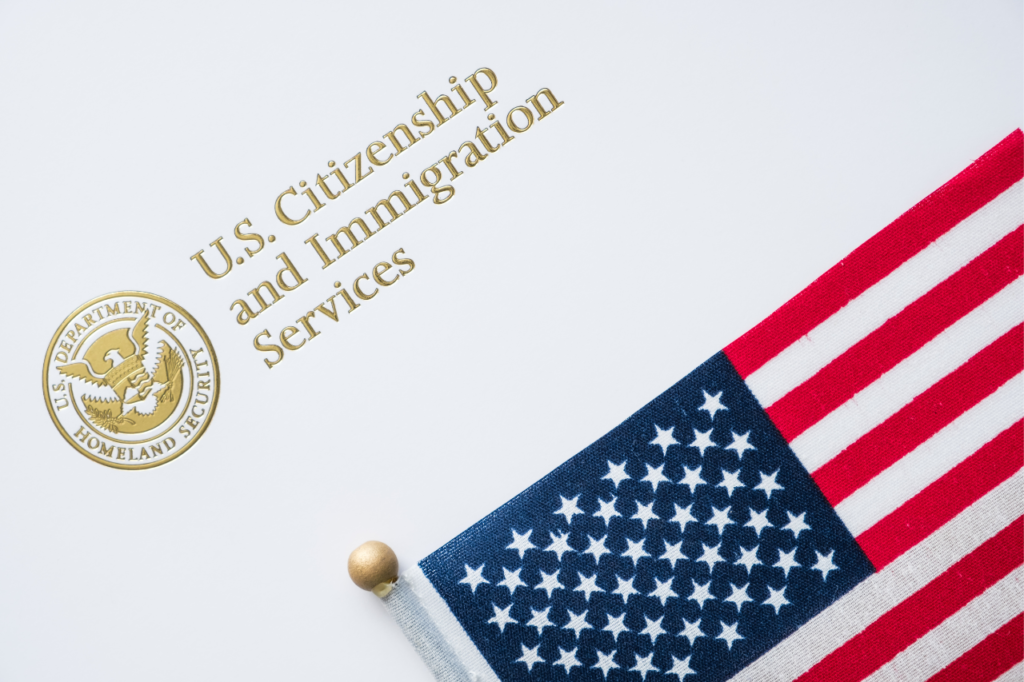As a U.S. citizen living abroad who wants to sponsor your foreign relative for a green card, the process might seem overwhelming but a key requirement is proving your U.S. domicile, which means showing that your main home is in America and this overseas US citizen article will guide you through the steps.
Understanding the Importance for Overseas US Citizens
To sponsor someone using Form I-864, you need to meet several criteria like your U.S. domicile, which means that the United States is your primary home, and you intend to keep it that way for the foreseeable future.
Proving it for Form I-864
Employment Abroad by U.S.-Related Entities
One way to prove this while living overseas US citizen is through employment by certain U.S.-related entities, such as:
- The Government: This includes working at embassies, consulates, or for the military and other government agencies.
- Research Institutions: Employment at specific institutions listed in federal regulations can support your claim.
- Public International Organizations: Working for organizations in which the U.S. participates by law can qualify you as having a U.S. domicile.
- American-Owned Companies in Foreign Trade: Employment with U.S.-owned companies involved in international trade can help establish your domicile.
- Religious Denominations or Interdenominational Organizations: Serving as a priest, minister, or missionary for a U.S.-affiliated religious organization can support your claim.
Employment can include full-time positions, contracts, or work under grants. The strength of your claim will depend on your specific circumstances, so consulting an immigration attorney is a good idea to assess your eligibility.
Requirements for Proving Domicile
- Principal Residence: You must show that the U.S. is where you live most of the time and plan to return to it in the foreseeable future. This is essential because simply being a U.S. citizen living abroad does not automatically establish your domicile in the U.S.
- Written Explanation: Along with your Form I-864, you need to include a written explanation detailing your circumstances and intentions regarding your domicile in the U.S.
- Documentary Evidence: You must provide supporting documentation that can include:
- Employment Evidence: Letters from employers on official letterhead if you are working for a U.S.-related entity (e.g., U.S. government, American research institutions) abroad.
- Ties to the U.S.: Documentation showing ongoing connections to the U.S., such as:
- Proof of property ownership or rental agreements.
- Evidence of voting in U.S. elections.
- Renewed licenses or subscriptions in the U.S.
- Mail correspondence is sent to a U.S. address.
- Intent to Return: Any actions taken that demonstrate your intent to return to the U.S., such as job applications, lease agreements, or letters from landlords in the U.S.
- Temporary Living Abroad: If you are temporarily living abroad but intend to return, you can still be considered domiciled in the U.S. This includes situations like studying abroad or working on specific projects with plans to return.
- Consultation with an Attorney: Given the complexities involved in proving domicile, it is advisable to consult with an immigration attorney who can help ensure that your documentation meets USCIS requirements and effectively supports your claim of domicile.
Living Abroad Temporarily as a U.S. Citizen
Another way to establish a U.S. domicile is by temporarily living abroad while maintaining ties to the United States. Many U.S. citizens live abroad for specific projects with the intent to return. To prove your domicile, emphasize:
- The Duration of Your Project: Show that your stay abroad is temporary by highlighting the term of your project.
- Maintaining Ties to the U.S.: Provide evidence of ongoing connections to the U.S., such as:
- Receipts for property storage facilities in the U.S.
- Proof of renewed licenses, subscriptions, or contributions to U.S. organizations
- Continued participation in U.S. elections
- Ownership or leasing of property in the U.S.
- Visits to family and friends in the U.S.
- Continued receipt of mail in the U.S.
- Renewal of a U.S. driver’s license
- Statements from U.S. banks, mortgages, or other accounts
Include any relevant documentation of your temporary immigration status in the foreign country, as well as correspondence that supports the temporary nature of your stay.
Establishing a U.S. Domicile Alongside the Intending Immigrant
If you plan to move back to the U.S. in the future, you can still be eligible to file Form I-864. Show evidence of concrete steps you’ve taken to relocate permanently to the U.S., such as:
- Correspondence with U.S. landlords
- Resignation from your foreign job and applications to jobs in the U.S.
- Initiating a business in the U.S.
- Closing accounts with foreign institutions and opening accounts with U.S. institutions
Establishing a U.S. domicile as a U.S. citizen living abroad is crucial when sponsoring a foreign relative for a green card using Form I-864. Whether through employment with U.S.-related entities, temporary residence abroad, or future domicile plans, understanding the requirements and providing strong evidence is key to a successful sponsorship process.
For personalized guidance, consult an immigration attorney who can help you navigate the complexities of overseas US citizen requirements. By following overseas US citizen guidelines and documenting your case thoroughly, you can confidently pursue your goal of reuniting with your loved ones in the United States.
How Law and Visas Can Help?
At Law and Visas, our team of expert immigration consultants is here to make your travel to overseas US citizens straightforward and successful. Whether you’re applying for an IR-1/CR-1 Visa or a K-1 Visa, we handle every step—from preparing your application to gathering the required documents.
Our immigration lawyer consultants and Lawyers ensure that your application meets the highest standards, with no details missed. We’ll also keep you informed throughout the process, coordinating with the immigration office or embassy on your behalf.
Law and Visas has a strong record of helping clients secure the visas/permits they need to travel overseas. Call us today at +234 812 5505 986 to learn how we can assist you.





